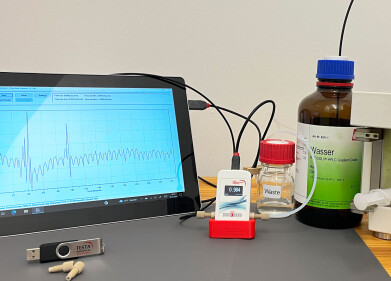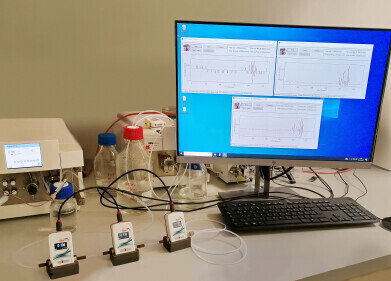Data handling
Investigating the Hidden Dangers of Herbal Diet Pills with Chromatography
May 27 2016
The number of people classed as overweight or obese has increased dramatically in recent years. Low-fat diets, high-fat diets, no-carb diets and high protein diets are all offered as fixes to give us the size, shape and weight that we want.
But sometimes diet is not enough and people look to pills for a quick fix. As prescription diet pills are removed from the marketplace due to safety concerns — people turn to over-the-counter pills, herbal remedies. But what do they contain, are they really made of natural plant materials? And — are they safe?
The world is getting bigger and heavier
The statistics on obesity are staggering — but look around any high street and you realise they reveal the truth. The World Health Organisation (WHO) estimate that worldwide obesity has doubled since 1980, and almost 2 billion adults — representing 39% of Earth’s population — were classed as overweight in 2014. 13%, or 600 million people were obese in 2014, and what was once a problem for high-income countries is now a problem for both developing and developed countries.
Obesity and being overweight are preventable conditions — with WHO linking an increase in energy rich food that is high in fat with a more sedentary lifestyle as the main drivers of the problem. And while a change in diet and an increase in exercise are the ideal combination to address the issue — some people might look to a pill for the answer.
Are herbal pills the answer?
Many prescription drugs for obesity have been removed from the marketplace due to safety concerns — with strokes and mental issues being cited amongst unwanted side effects. So patients have turned to other sources including herbal pills. With herbal included in the description or name — many people might assume that these pills are pure, natural and safe.
But unfortunately that is not always the case. A quick internet search for ‘contents herbal weight loss pills’ reveals numerous studies into the contents and side-effects of herbal pills. Often, analysis reveals Sibutramine — an appetite suppressant drug banned in the EU for the treatment of obesity — in the contents of herbal pills.
Fingerprinting and chemometrics
With doctors reporting patients being admitted to hospital with suspected Sibutramine intoxication and others with liver damage due to the effects of herbal diet pills — a new study published in Drug Testing and Analysis offers a high throughput analysis method to test herbal diet pills.
The team used liquid chromatography with photodiode array and mass spectrometry to analyse diet pills and used chemometrics to develop fingerprint models from the data. The models can be used to detect illicit chemicals in the diet pills — aiding regulators in their quest to keep us safe from illicit compounds.
The use of data analysis in chemometrics and fingerprinting is discussed in this article, Streamlining the Use of High Resolution Mass Spectrometry Data to Fingerprint Adulterated Honey using Multivariate Data Analysis to Facilitate Food Product Quality Control in Chromatography Today.
Events
Apr 02 2025 Saigon, Vietnam
Apr 22 2025 Kintex, South Korea
Analytica Anacon India & IndiaLabExpo
Apr 23 2025 Mumbai, India
Apr 27 2025 Portland, OR, USA
May 11 2025 Vienna, Austria














